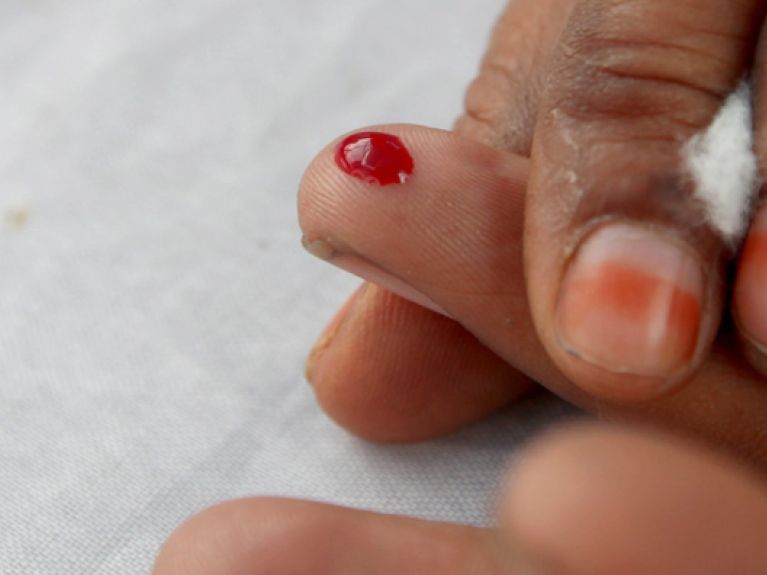German-Scottish malaria researchers report success
A German-Scottish research team has developed a potential vaccine against malaria.

Around the world about one million people die every year of malaria, about half of whom are children under five. Health care organizations draw attention to the shocking consequences of this infectious disease especially on World Malaria Day. Scientists have been seeking reliable protection against malaria for years. At the beginning of 2014, a team of researchers from the University of Edinburgh, the Scottish National Blood Transfusion Service and the company Cilian AG in Münster reported success in this effort. The Scottish and German researchers have jointly developed a new potential vaccine against malaria.
They published the details of the project, which according to the North Rhine-Westphalian company’s information was supported by the EU with more than one million euros, in the online science magazine Plos one. With the help of the protozoa Tetrahymena thermophyla, which lives in ponds and puddles, the researchers were able to chalk up a remarkable medical advance: they used a genetically modified T. thermophyla. The protein synthesis mechanism of these protozoa resembles that of Plasmodium. The malaria pathogens of the species Plasmodium are particularly insidious parasites. They hide temporarily in liver cells and red blood cells and multiply in them. The body’s defences then lose out to the parasite’s changing “camouflage”. This variability has so far prevented the development of an effective vaccine.
According to the British researchers, the German pharmaceutical company has been able to produce an artificial protein with a broad scope of effects. It carries recognition structures of several variants of the major surface molecule of Plasmodium falciparum, the most dangerous of malaria parasites. As an antigen, the artificial protein will provide the immune system with information enabling it to recognize strains of malaria. In this way the body could immediately produce appropriate antibodies to fight the parasites in the case of a Plasmodium falciparum infection. The vaccine prototype, according to the report, has already shown its effectiveness in mice and in laboratory tests. Now it will be further developed for practical use.

